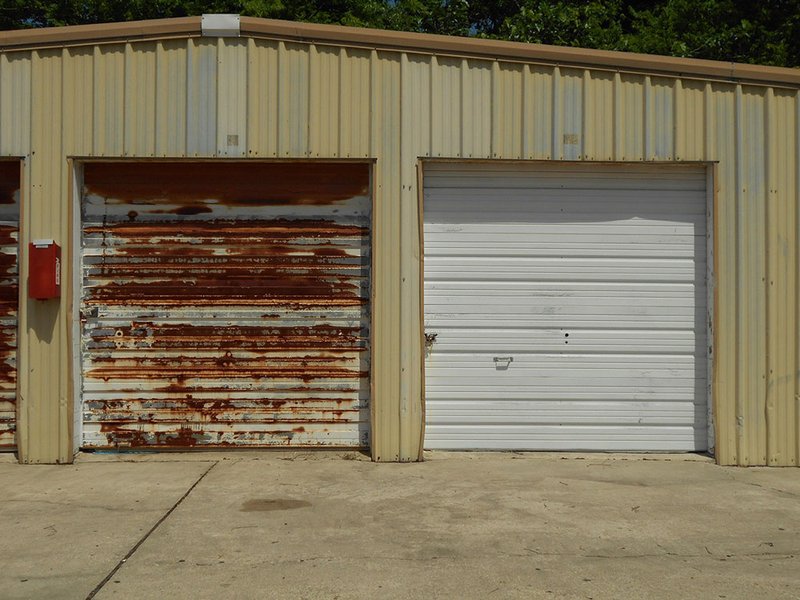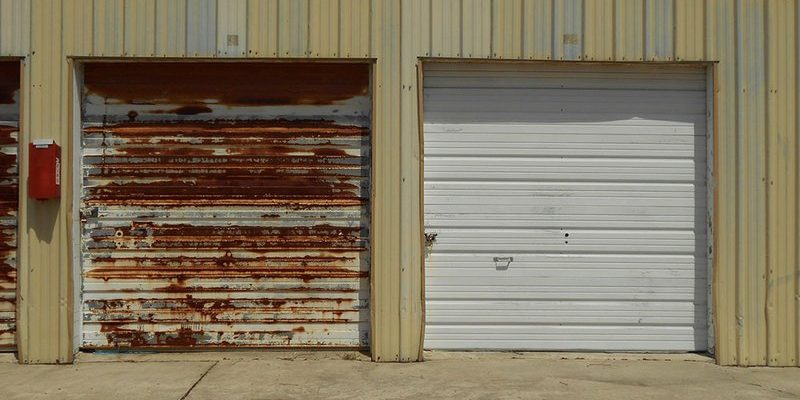
Imagine your door hardware as the unsung hero of your home. It works day in and day out, keeping your space secure and accessible. If you neglect it, that hero can quickly turn into a villain with unsightly rust stains and functionality issues. Luckily, there are several simple and effective ways to prevent rust. By taking a little time and effort now, you can save yourself from headaches later on.
Choose the Right Material for Door Hardware
When selecting hardware for your garage entry, the material matters a lot. Not all metals are created equal when it comes to rust resistance. Stainless steel and brass are excellent choices because they contain elements like chromium that help resist corrosion. If you’re leaning towards something more budget-friendly, look for galvanized steel, which has a protective zinc coating.
Here’s the thing—understanding the difference helps you make informed decisions. For instance, while aluminum might be lightweight and easy to install, it doesn’t hold up well in salty or humid environments. On the flip side, stainless steel is often more expensive but pays off in longevity. So, weigh your options carefully.
It’s also worth noting that some brands offer specialized coatings on top of these metals. These coatings are designed to enhance rust resistance significantly. Look for terms like “rust-resistant” or “corrosion-proof” when shopping, which can offer extra peace of mind.
Regular Cleaning is Key
You might be wondering how something as simple as cleaning can affect rust prevention. Well, accumulated dirt, grime, and moisture can contribute to rust forming sooner rather than later. A quick cleaning routine can keep your hardware in top shape.
Aim to wipe down your door hardware at least once a month using a soft cloth and mild detergent. Avoid harsh chemicals that can strip away protective coatings. If you notice any rust spots starting to form, tackle them quickly with fine steel wool. Don’t scrub too hard; the goal is to remove the rust without damaging the finish.
Now, let’s not forget the areas where water tends to gather, like hinges and handles. Make sure to dry these spots thoroughly after cleaning. A soft, clean towel can do wonders for preventing moisture build-up. This simple act of cleaning can extend the life of your hardware dramatically.
Apply Protective Coatings
Applying a protective coating is another effective way to guard against rust. Think of it like sunscreen for your door hardware. Just as you wouldn’t leave the house without protecting your skin on a sunny day, you shouldn’t let your hardware go exposed.
There are various rust-inhibiting sprays and oils available on the market that are specifically designed for this purpose. Look for options that are easy to apply and offer a durable finish. You can usually find these products in home improvement stores or online.
To apply, start by cleaning the hardware thoroughly to remove any dirt or existing rust. Then, spray or wipe the protective coating evenly over the surface. Let it dry completely before handling. Aim to reapply every six months to a year, depending on your local climate. This small step can save you a lot of trouble down the road.
Use a Dehumidifier or Ventilation
If your garage is prone to moisture, using a dehumidifier can help keep humidity levels in check. High humidity creates an ideal environment for rust to thrive. By reducing moisture in the air, you limit the chances of rust forming on your hardware.
Here’s a good strategy: put a dehumidifier in your garage, especially during warmer months or when the humidity peaks. If a dehumidifier isn’t feasible, consider improving ventilation. Even a small fan can promote air circulation, reducing moisture buildup.
Another simple trick is to keep windows opened on dry days. Fresh air can significantly lower humidity levels. A little ventilation goes a long way in making sure your garage entry hardware remains rust-free.
Inspect for Damage and Take Action
Regular inspections of your door hardware can help you catch potential rust issues before they escalate. Make it a habit to check your door hinges, handles, and other components every few months. Look for any signs of rust, wear, or damage.
For minor rust spots, address them immediately using sandpaper or steel wool. After removing the rust, be sure to clean the area and apply a protective coating. If you notice extensive damage, it might be time to replace the affected hardware rather than risking ongoing problems.
Think of this as a maintenance check. Just like you wouldn’t wait until your car is making weird noises to take it to the mechanic, you shouldn’t wait until your hardware is fully rusted to take action. Early intervention can save you time, money, and frustration.
Store Seasonal Items Properly
If you store items in your garage, they might inadvertently cause rust on your hardware. For example, if you have metal tools or outdoor equipment that’s wet or damp, they can lead to water pooling near your door hardware.
To prevent this, consider organizing your garage in a way that keeps wet items away from your entry door. Use shelves or cabinets to keep tools and equipment off the ground and away from moisture. Also, ensure that any items are completely dry before putting them away.
If possible, invest in a water-resistant mat for your garage entryway. This can help catch any moisture before it reaches your door hardware, providing an additional layer of protection.
Final Thoughts on Keeping Your Door Hardware Rust-Free
Maintaining exterior-grade door hardware doesn’t have to be a chore. With a few simple steps, you can effectively prevent rust and extend its lifespan. By choosing the right materials, cleaning regularly, applying protective coatings, and ensuring proper ventilation, you set yourself up for success.
Remember that small efforts add up. Keeping your garage entry secure and functional might require a little attention, but it’s well worth it. After all, your door hardware is your first line of defense against the elements. Embrace these tips, and you’ll keep your door hardware looking and performing its best for a long time.
